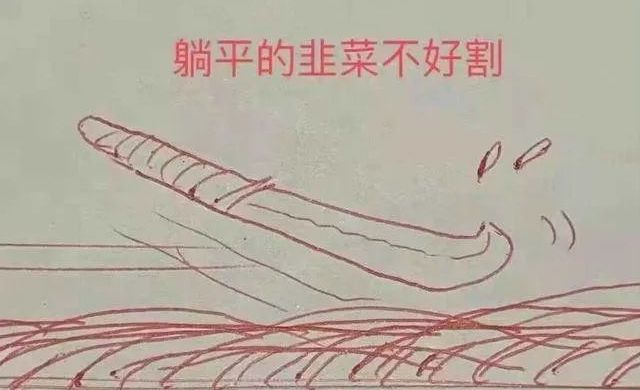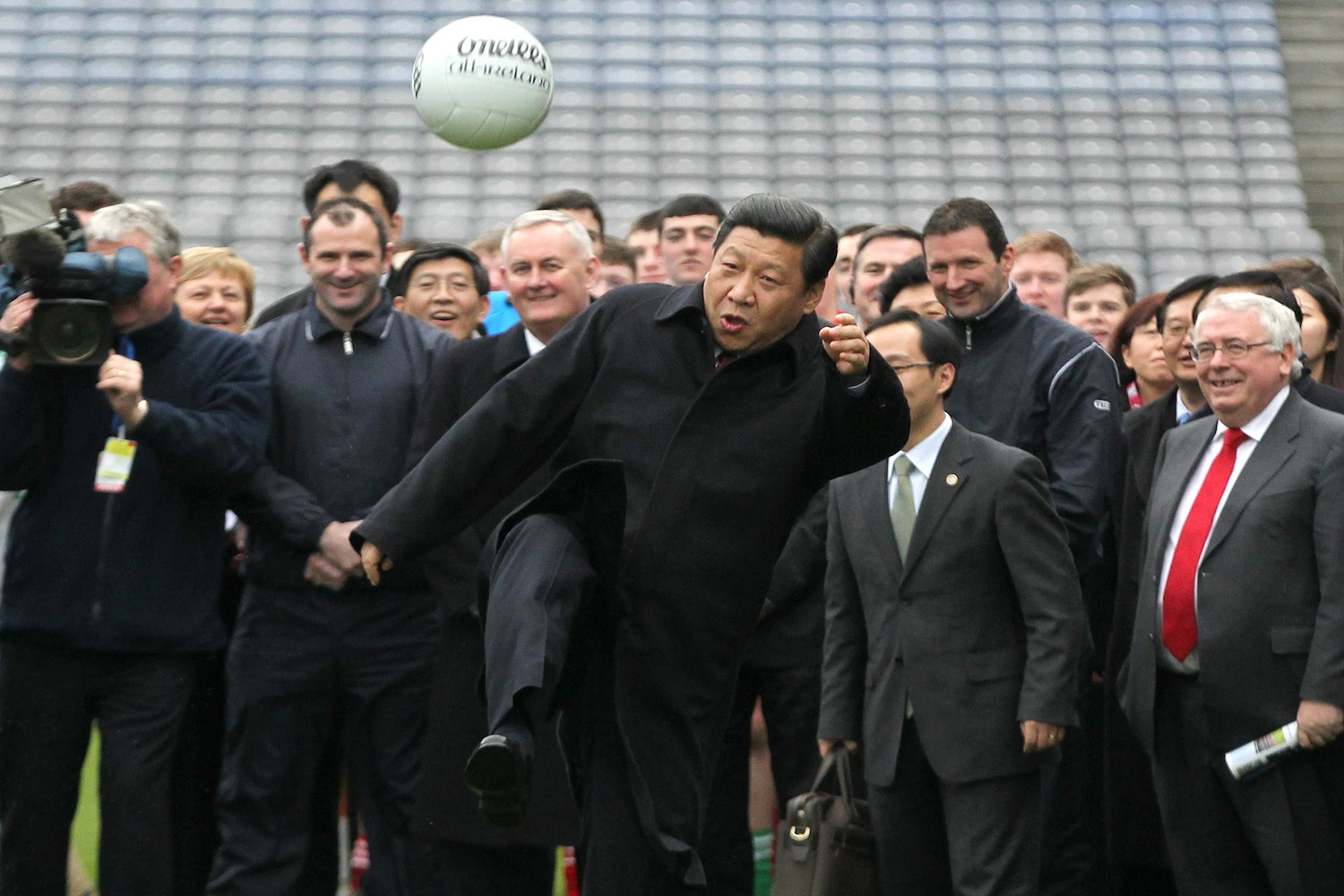

Teleology: the Groundwork for Chinese Politics – Wenjie Zheng – Statistical Lear...
source link: http://www.zhengwenjie.net/telos/
Go to the source link to view the article. You can view the picture content, updated content and better typesetting reading experience. If the link is broken, please click the button below to view the snapshot at that time.
Teleology: the Groundwork for Chinese Politics
Most western thinkers and media criticize China because China does not share the same ideology as they do. In their view, the western democratic, libertarian society is the norm, and any deviation from these principles is “abnormality”.
I would like to point out that this line of reasoning is insufficient. If China is abnormal because of its difference from the western countries, then does it make China normal by erasing the existence of western countries?
The western world made many mistakes because of ignorance of this issue. Google and other tech giants left China ten years ago simply because the Chinese constitution is different from the US’s. Realizing their prejudice, now (at least a few years ago) they are vying for returning to China.
A more sensible way of criticizing China is, therefore, studying the Chinese politics, its modality, for its own sake, without comparing it with western countries. Only after we fully understand what China is, can we start to make comparisons. Any pre-mature comparison is partial and doomed to prejudice.
In this post, I will lay down the groundwork for Chinese politics, by resorting to teleology. Teleology dates back to Aristotle, and I found it an accurate tool to picture the Chinese political philosophy.
Teleology
Teleology stems from the Greek word “telos”, which means the ultimate goal. Teleology refers to the philosophy where the explanation of phenomena in terms of the purpose they serve rather than of the cause by which they arise.
To make a vivid illustration of teleology, I will cite Professor Michael Sandel’s example: Winnie-the-Pooh.
Winnie-the-Pooh walked in the forest one day. He came to a place in the forest, and from the top of the tree there came a lot of buzzing noise. Winnie-the-Pooh sat at the foot of the tree, putting his head between his paws and began to think.
Here is what he said to himself, “that buzzing noise means something. You don’t get a buzzing noise like that, just buzzing and buzzing without meaning something. If there is a buzzing noise, some body is making a buzzing noise. And the only reason for making a buzzing noise that I know of is because you’re a bee.”
Then he thought another long time and said, “the only reason for being a bee that I know of is making honey.”
Then he got up, and he said, “and the only reason for making honey is so I can eat it.”
So he began to climb the tree.
Winnie-the-Pooh started with the cause-and-effect reasoning: If there was buzzing noise, there must be bees around.
But he quickly switched to teleological reasoning: The telos for being a bee is to make honey, and the telos for making honey is for him to eat it.
Women are experts of teleological reasoning: Oh, this man is so nice to me; the only reason for him to be so nice to me is that he wants to sleep with me, not just showing respect to my dignity, my capacity of pure reason as a member of mankind. The dating industry has a vivid depiction of this kind of teleological reasoning: Brownie Point.
Teleological reasoning-based resource distribution
In the human relationship, when a man says nice things or jokes to a woman and that woman accepts it, he gains brownie points. When he insults or is rude to that woman, he loses brownie points. He unlocks the sex option with that woman when he acquires enough brownie points or ranks the highest in the race among all pursuers, depending on the sexual agenda of that woman.
Women see sex as a reward to men’s accumulated long-term good deeds. Along with the sex awarded is the honor awarded. Men see sex as a medal for their Herculean labor, their achievement, something that he is proud to show off among his peers. In this constitution, both parties should be happy. Women get emotional value, while men get sex and the associated honor. If both parties are happy with this constitution, we should say that justice is achieved.
In this dating game, justice is achieved by distributing the sexual resource to those who acquire the most brownie points. This situation is quite similar to the idea of the Social Credit System in China. Properly speaking, the Chinese Social Credit System is the ultimate generalization of the dating game.
I am not an expert on the so-called Social Credit System. According to some western self-media, it is a system where you gain credits by being a good citizen and lose ones by doing misdeeds, such as speaking ill of the Chinese government. Citizens with high social credits are given convenience in daily life, whereas citizens with poor social credits may even be banned from inter-city traveling.
Behind this idea of Social Credit System is the simple fact that resources are limited in any society. According to teleological reasoning, resources should be prioritized for good citizens. Along with the resources distributed is the honor distributed: the so-called good citizens feel honored and will defend this constitution and their pride.
Both examples demonstrate the teleological reasoning-based resource distribution. Sex and life convenience are distributed to those with high brownie points and social credits, respectively. Along with the resources distributed is the associated honor distributed, representing the recognition of the accumulated long-term good deeds. Hence is achieved the teleological reasoning view of justice.
Teleological reasoning in distributing political authorities
Besides sex and life convenience, there exist other resources, among which the most crucial one: political authorities. Just like sex and life convenience being distributed to good pursuers and good citizens, political authorities should be distributed to good rulers.
Then what do good rulers consist of? To answer this question, we need to resort to the purpose, or the telos, of ruling. The answer can vary among people. Aristotle claimed that the telos of ruling is to form virtuous citizens. I would say that the majority of Chinese philosophers, since ancient time, agree with him, and that the current Chinese authorities still stick to this very idea.
Given that the telos is to form virtuous citizens, we should distribute political authorities to the person with the highest virtue. With his virtue, he can serve as a moral model and inspire us to be the same with him, just like how small stars surround the large star on the Chinese flag.

It is even more convincing when you notice how the four smaller stars point at the center of the larger star. There are even slogans for it:
Obey the Party and follow the Party.
People’s Liberation Army is loyal to the Party.
The Chinese national emblem is an even more authentic incarnation of this idea, for it puts the larger star in the center above all the smaller stars, essentially implying the highest virtue and authority of the larger star.

You read it right. The telos of the Chinese authorities is not to ensure the freedom or basic rights of human beings, but to transform Chinese people into virtuous creatures.
How to be a virtuous creature
In China, being a virtuous creature firstly means that you cannot have any attachment with pornography, drugs, and gambling. There is no pornographic website like PornHub or casinos like the ones in Las Vegas. If a film star or the like is found associated with drugs, he will get banned by the Chinese authority from ever reappearing in media.
Also, the highest moral attack is the accuse of prostitution. That was the tool the Chinese authorities used to detain Professor Xu Zhangrun and former British consulate worker Simon Cheng (who, accidentally, shares the same Chinese name as I). By accusing them of buying sex, the Chinese authorities render the victims morally defenseless. All their virtue is crashed, and their efforts in protecting human rights will instantly lose its moral weight.
Here, just a few more words on the Chinese attitude towards sexuality, because this point is crucial for understanding the National Security Law discussed later on in this post. In Disney’s newest film Mulan (2020) featuring an ancient Chinese heroine with the same name, a romantic kissing scene was removed to appease the Chinese audience and authority. Chinese heroines don’t kiss, just like Batman can’t go down on Catwoman.

Secondly, being a virtuous creature means that you should be a hard-working person. The rice and gear on the peripheral of the national emblem tells you to work hard to produce food and industrial products. If the Chinese authorities were to remake the emblem, they would probably add elements of science (e.g., spaceships) and culture (e.g., Marxism and Leninism).
Last but not least, being a virtuous creature means that you should not have independent thinking. You should unconditionally obey the authorities and use their thoughts to weaponize your brain. After all, the telos of the authorities is to educate you, and the telos of you is to be educated by the authorities.
A counterexample would be Xinjiang. Uighur are being sent into the Xinjiang internment camps because they are not as “virtuous” as the people (known as Han) in the other provinces of China. They need to be reeducated so that they could be one of the smaller stars pointing at the large star, just like the already tamed Han.
In summary, a virtuous creature should be obedient, hard-working, and need no entertainment. There is no wonder why the Chinese people of today ironically call themselves leek: absorbing the sunshine and water, growing spontaneously, only to wait eagerly for being harvested by the authorities.

How to be a virtuous leader
Equally important for the population to be virtuous is to have a virtuous leader. There is no strict definition of a virtuous leader, but judging from the God-like role he is expected to play, he should somewhat be omnipotent, omniscient, and omnipresent.
General secretary Xi is an excellent example. Firstly, Xi is a muscle man. He claimed, in an interview, that he carried 100kg of wheat and walked 5km of mountain road without switching shoulders.
Secondly, Xi is a brainy man. He holds a PhD degree from Tsinghua University. In addition, he received honorary doctorate from Russian university. He is the author of several books.
Thirdly, Xi is knowledgeable. He organized dozens of working groups and became the leader of each to handle every aspect of China. The so-called Xi Jinping’s thoughts can solve any problem in the world.
Fourthly, Xi is hard-working. He is especially proud of his personal guidance and deployment in issues such as poverty, environment, and pandemic.
Fifthly, Xi has extensive hobbies. He is the world’s most powerful soccer coach. Besides football, he is also an avid reader of world masterpieces, especially French literature.

Here, I am not questioning the credential of these achievements. The point I want to make is about the necessity for the Chinese leader to be a God-like person.
Defense of the virtuous leader
In the previous section, we saw the importance for the Chinese leader to be the most virtuous person. In this section, I will discuss the PR crises and how they are handled.
The first crisis involved Causeway Bay Books in Hong Kong and directly resulted in the enactment of National Security Law. At that time, Causeway Bay Books was working on book regarding Xi Jinping’s personal love history, tentatively named Xi and His Six Women. As I previously mentioned, sexual activities are extremely sensitive in China. This book was like a slap on the face, which would undermine Xi’s virtue and hence his leadership. Therefore, Xi enacted the National Security Law to suppress the freedom of speech in Hong Kong.
The second crisis is the US-China trade war. After Ex-President Trump raised the tariff against China, China immediately retaliated by also raising the tariff. Trump’s move was a face-losing thing for Xi. If Xi had not retaliated, he would have been perceived as a coward (or he would perceive himself as a coward). Will Chinese people accept a coward as their leader? Even though Chinese people wouldn’t mind, Xi’s political opponents would take this opportunity to strip Xi’s power. Therefore, Xi had no choice but started the trade war with the US.
The same retaliation can be observed everywhere. Donald Trump accused China of spreading the virus, so the Chinese authorities accused the US army of spreading the virus. WHO wanted to investigate Wuhan P4 Laboratory, so the Chinese authorities wanted to investigate the US Army Medical Research Institute of Infectious Diseases. Canada detained Huawei’s CFO Meng Wanzhou, so the Chinese authorities detained two Michaels from Canada. And earlier this month, China sent about 150 warplanes into Taiwan’s air defense identification zone to retaliate against the US presence in Taiwan.
Face, or honor, is the most crucial thing for the Chinese leaders. Chinese leaders can never take a criticism.
Premise of teleological reasoning in political philosophy
Teleological reasoning requires people to be a virtuous being, and it distributes political authorities to the one with the highest virtue.
The plausibility of this arrangement requires two assumptions:
- People do want to be virtuous.
- All virtues are compatible, so that they could be combined on a single person.
In real life, not all people aim at being virtuous. In my experience in Europe, I have met countless persons with pure selfishness or malice. Their life goal is not to be a virtuous being, but to use you for their personal gain. It is therefore ridiculous to assume Chinese are all virtue-seeking beings.
As for the second assumption, not all virtues are compatible with each other. Still in that film of Mulan (2020), Mulan’s romance with his commanding officer, Captain Li Shang, was dropped in favor of the #MeToo movement. This removal was met with the objection of the LGBTQ community, for Li Shang’s interest in Mulan, disguised as a man, was deemed as bisexual. To resolve this issue, the film producer smartly split Li Shang into two characters. In real life, however, you don’t always come with clever solutions as such.
People do not always want to be virtuous, and not all virtues are compatible. The Chinese authorities are, of course, conscious of the violation of these assumptions. To remedy these broken assumptions, they took a series of measures, and all these measures share a common feature – uniforming the thoughts.
Remedies for the broken premise
First and foremost, the remedy should start from the infant stage. In schools, one important subject is called Virtue, which is every student’s nightmare. In primary schools, Virtue teaches you to be loyal to the country, be obedient to your parents, be hard-working, sacrifice for the greatest good. In middle schools, it teaches some notions from ancient Greek philosophy and Marxism, and then it proceeds to the most important part – socialism.

Secondly, there can be no independent media. Media should be under full control, and it serves as the mouthpiece of the authorities. This measure prevents the public not only from knowing the imperfection of the “virtuous” leader, but also from knowing the values of a larger world. Thus, they will not be influenced by democracy, liberty, and freedom, which contradict the virtues advocated by the Chinese authorities. If the virtues are incompatible among each other because there are too many of them, then just remove some of them until they become compatible.
Thirdly, the Chinese authorities make the law as strict as possible. Nearly every person is in the state of violating the law and can be arrested one day or another. On top of that, surveillance cameras are everywhere. Chinese people live within this so-called Trap of Law, a term coined by Mencius, and the net of surveillance, under which personalities are not permitted.
The underlying idea behind all these measures is to uniform human beings. This behavior sounds ridiculous, but it is not uncommon, even in western countries. Indeed, it is what is being practiced by third-rate data scientists: If the data does not yield the results they want, they just give the data a “massage” and make it yield the desired results.
Hence, from a horde of simplistic, homogenous creatures, a virtuous leader is born.
Summary
Chinese politics is built on teleological reasoning. The telos of people is to become virtuous creatures, and the telos of the ruler is to guide his people towards virtues. The best ruler in this case is the one who has the highest virtues.
To make this wet dream of teleological reasoning come true, the Chinese authorities attempt to uniform people’s thoughts and reduce them into simplistic, homogenous, obedient creatures. Only under this circumstance, a God-like virtuous leader is possible and can be wish for.
God making is the ultimate consequence of this teleological reasoning. To defend the honor of the ruler, the Chinese authorities unavoidably have to control all media and retaliate against anything that can cause the ruler to lose face.
You may also like
Recommend
About Joyk
Aggregate valuable and interesting links.
Joyk means Joy of geeK